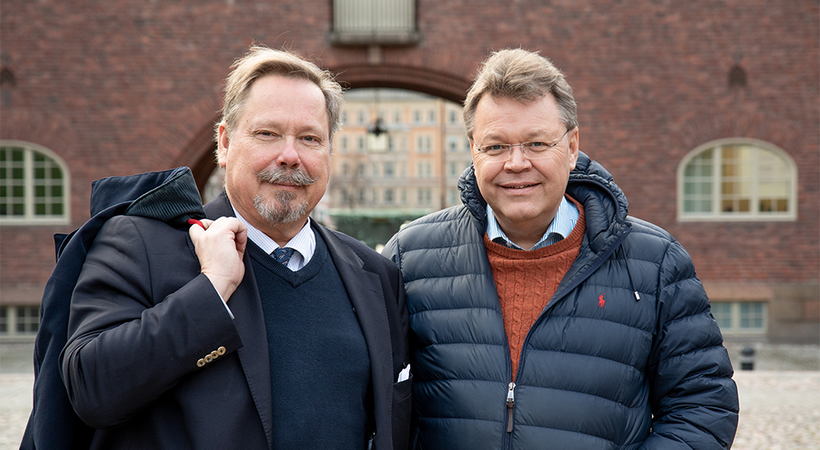A Swedish company, FerroSilva, has developed a completely new process for the production of fossil-free sponge iron, in collaboration with KTH Royal Institute of Technology, Chalmers University of Technology, Sveaskog and Ovako, among others.
The ambition is that a first factory, with the capacity to produce 50kt of fossil-free sponge iron per year, will be completed in 2026. "Our process requires less than a tenth of the electricity per ton of sponge iron produced compared to the electrolysis-based initiatives," claim representatives of FerroSilva today on the Swedish website Dagens Industri Debatt.
The much-discussed hydrogen-based methods for producing fossil-free sponge iron are very electricity-intensive, claims FerroSilva's. Our process requires less than a tenth of the electricity per ton of sponge iron produced, as most of the energy used in our process is stored in forest residues that we gasify, says Göran Nyström at FerroSilva.
FerroSilva began as a project originating from the Department of Processes at the Department of Materials Science at the Royal Institute of Technology, KTH, in Stockholm. In the spring of 2020, Peter Samuelsson and Rutger Gyllenram won KTH Innovation's prize with FerroSilva as the best proposal for reducing greenhouse gas emissions, and in the spring of 2021, the Norwegian Energy Agency, STEM, decided to part-finance a feasibility study that was completed in the fall of 2022.
The FerroSilva project is a collaboration with KTH and Chalmers and is supported by Lantmännen, Sveaskog, Ovako, Uddeholm and Alleima (formerly Sandvik Materials Technology).
FerroSilva has developed a new process to produce fossil-free sponge iron. In the autumn of 2022, an extensive feasibility study was completed and FerroSilva's calculations showed that the production method would be more cost-effective than other currently known initiatives to produce fossil-free sponge iron in Europe.
"FerroSilva is, to our knowledge, the first in the world to commercialize this process, which is particularly suitable for countries with good access to biomass and where access to electricity is a limiting factor,"
FerroSilva.
"FerroSilva is, to our knowledge, the first in the world to commercialize this process, which is particularly suitable for countries with good access to biomass and where access to electricity is a limiting factor," according to representatives of the company writing an opinion piece in Dagens Industri today. "The FerroSilva process also does not require an extended electricity grid infrastructure. The result of our process is sponge iron that has been created with negative carbon dioxide emissions."
The plan is to break ground as soon as possible for FerroSilva's first factory at Ovako's Hofors plant, with a planned start-up in 2026 and a capacity to produce 50kt/yr of fossil-free sponge iron. The energy-efficient process is claimed to generate and capture several useful industrial inputs such as biochar and captured biogenic carbon dioxide that can be used, for example, for the production of electrofuels.
"Letters of intent are in place with Sveaskog for our input material and with Ovako for land use, as well as an off-take agreement with Ovako for parts of our future production of fossil-free sponge iron. In addition, there are letters of intent with OX2 and Linde for parts of our future production of liquid biogenic carbon dioxide," says Göran Nyström.






